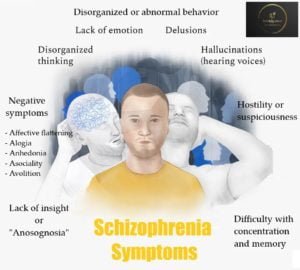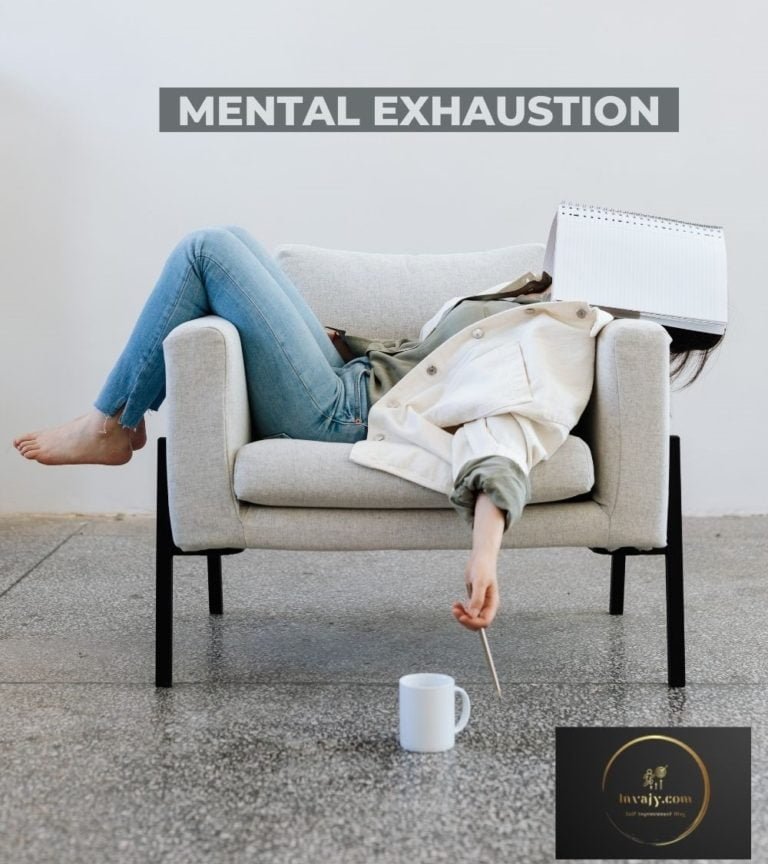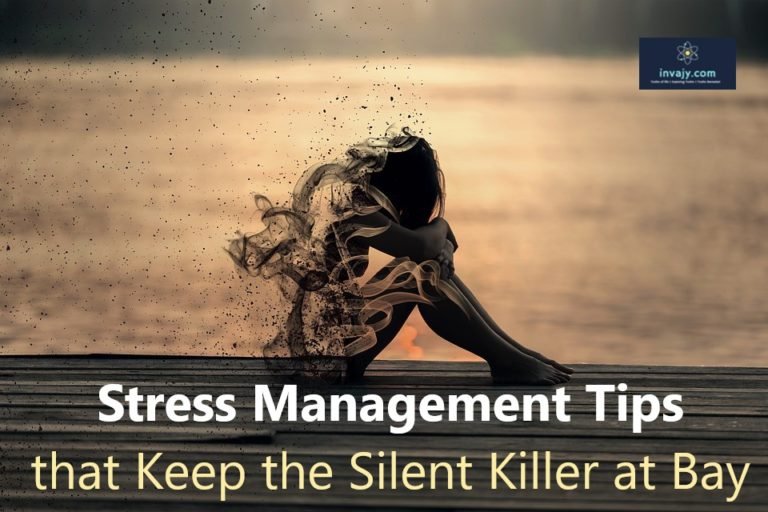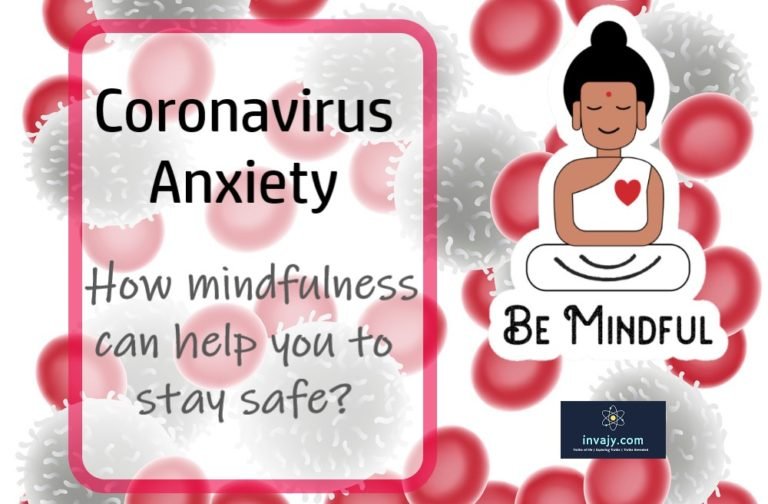How to Take Care of You with Schizophrenia?
Understand Schizophrenia with insights into its symptoms, causes, and treatments. Explore effective strategies for managing the condition and supporting mental health, aiming for improved quality of life and well-being.

Schizophrenia is a serious mental disorder in which people interpret reality abnormally. It can make a person feel detached and away from reality. Having diagnosed with schizophrenia can be a difficult experience for some people. People suffering with it find it difficult to manage symptoms, work and live independently, build or maintain satisfying relationships, and enjoy a fulfilling rewarding life. Misconceptions and stigma surrounding schizophrenia are also more pronounced than other mental heath conditions.
What is Schizophrenia?
Schizophrenia is a complex, chronic mental health disorder; where a person experiences some form of “disconnection” from reality. He/she finds it difficult to differentiate – what is real and what is not. These disconnections can take several different forms. The person struggle to think clearly, manage emotions, relate to other people, or even function normally.

Causes of Schizophrenia
The exact causes of schizophrenia are unknown. Research suggests a combination of physical, genetic, psychological and environmental factors can make a person more likely to develop the condition. Structural and chemical changes in brain, pregnancy or birth complications, childhood trauma, and drug abuse may be responsible for the condition. Some people may be prone to schizophrenia, and a stressful or emotional life event might trigger a psychotic episode.
Schizophrenia Symptoms
Schizophrenia is characterized by thoughts or experiences that seem out of touch with reality. The symptoms includes:
- Delusions – These are false beliefs that are not based in reality.
- Hallucinations – These usually involve seeing or hearing things that don’t exist.
- Disorganized thinking (speech) – Disorganized thinking is inferred from disorganized speech.
- Extremely disorganized or abnormal behavior.
- Lack of insight or “Anosognosia”
- Difficulty with concentration and memory.
- Decreased participation in daily activities.
- Social withdrawal.
- Hostility or suspiciousness, extreme reaction to criticism.
- Deterioration of personal hygiene.
- Negative symptoms: the “five A’s” of schizophrenia

The ‘5 As’ of schizophrenia
The most common negative symptoms are often summarized as “the five A’s” of schizophrenia, which include:
- Affective flattening: lack of emotional display or responses
- Alogia: lack of speech
- Anhedonia: the inability to feel pleasure
- Asociality: lack of engagement with others
- Avolition: lack of motivation
Types of schizophrenia
There are actually several different types depending on the person’s symptoms, but generally, the main types include:
Paranoid schizophrenia
This is the most common type. Delusions and hallucinations are the two symptoms that can involve paranoia, but your speech and emotions may not be affected. Paranoia is a pattern of behavior where a person feels distrustful and suspicious of other people and acts accordingly.
Hebephrenic schizophrenia
The hebephrenic or disorganized schizophrenia is characterized by shallow and inappropriate emotional responses, foolish or disorganised behavior, short-lasting false beliefs (delusions), and false perceptions (hallucinations). You may have disorganised speech patterns and others may find it difficult to understand you. People living with disorganized schizophrenia often show little or no emotions in their facial expressions, voice tone, or mannerisms.
Catatonic schizophrenia
This is one of rarest schizophrenia diagnosis, characterized by unusual, limited and sudden movements. You may often switch between being very active or very still. You may not talk much, and you may mimic other’s speech and movement. In some cases, the patient may remain in a state of almost complete immobility, often assuming statuesque positions.
Undifferentiated schizophrenia
In undifferentiated schizophrenia, individual exhibits some characteristic symptoms of paranoid, hebephrenic or catatonic schizophrenia, but the overall picture doesn’t obviously fit into one of these types alone.
Residual schizophrenia
Residual schizophrenia is one in which the individual has suffered an episode of schizophrenia but there are no longer any positive symptoms of it, such as delusions, hallucinations, disorganized speech or behavior. But the person only experience the negative symptoms (such as slow movement, poor memory, lack of concentration and poor hygiene).
Cenesthopathic schizophrenia
Cenesthopathic schizophrenia is characterized by bizarre or bothersome bodily sensations (referred to as cenesthopathy), typically without a real, physical cause. People with such type of schizophrenia experience unusual bodily sensations.
Treatment of Schizophrenia
Despite of misconception; let me clear you that schizophrenia is a treatable condition that can be managed with the right tools and support, such as:
- coping skills
- self-care techniques
- psychiatric treatment
Here are the tips and strategies to manage Schizophrenia.
Accept your diagnosis
Accept your Schizophrenia diagnosis. As upsetting as a diagnosis of it can be, resolving to take a proactive role in treatment and self-help is crucial to your recovery. That means making healthy lifestyle changes, taking prescribed medications, and attending medical and therapy appointments. Your attitude towards its treatment matters.
Social coping
Schizophrenia can be a very isolating illness, in part due to common misconceptions and stigma around this condition. Some symptoms can also make social situations stressful.
With schizophrenia, your perception of the world can impact how you interpret new stimuli and people, which can be overwhelming.
But living with this mental health condition doesn’t mean to be lonely. Make Connections and build a strong social support network. Being with the other people who listen you in a nonjudgmental way can help you feel better.
Establish a support system
Psychosis involving hallucinations and delusions may make it challenging to accept support from others. But, establishing a strong support system can be a powerful way to manage many symptoms of schizophrenia. Establish a strong support system surrounding you. Your support system can include anyone who you feel safe with, such as:
- family
- friends
- mentor or a guru
- therapist
- animal companions and pets
- co-workers
- other loved ones
Sometimes, all you need is one person who is understanding and empathetic.
Support groups
It may also be helpful to look into attending support groups for schizophrenia. In support groups, people with the condition gather — either in person or online — to share their experiences and support each other. It helps you to get familiarized yourself with this mental illness and learn more about it. You can learn from other people’s experiences and imbibe the good strategies in your recovery.
Exercise
People with schizophrenia are more likely to get heart disease or diabetes, and gain weight. But you can make that less likely by being active and regular exercise. Get out and exercise every day. Even 15 to 20 minutes of brisk walking is good for you. 2 and 1/2 hours of aerobic exercise every week is recommended, which may include – walking, running, swimming, badminton or tennis.
Quit smoking and drinking
Nearly half of people with mental health condition abuse a substance, often cigarettes and alcohol. Studies show that people with schizophrenia who also have a substance abuse problem are more likely to experience severe symptoms. Quit smoking and create a smoke-free environment by removing ashtrays and cigarettes from the home. Smoking might make antipsychotic drugs less effective. You can follow a similar strategy for alcohol or other drugs by removing the substances and any reminders of them from his or her presence.
Sleep Well
Get a good night’s sleep. It helps keep your mental health on track and can improve your mood and thinking. Aim for a 7 to 8 hours of quality sleep every night.

But don’t go too far. Oversleeping can be a problem too, because it keeps you from getting out and being active. Try not to sleep more than 12 hours a day. People with schizophrenia tend to have a reversed sleep cycle, staying awake late into the night and then waking up in the afternoon.
Manage stress
The day-to-day stress of living with this challenging emotional disorder can be draining. High levels of stress also increase the body’s production of the hormone cortisol, which may trigger psychotic episodes. There are plenty of steps you can take to reduce your stress levels:
- Use relaxation techniques such as mindfulness meditation, deep breathing, or progressive muscle relaxation
- Notice unpleasant emotions and try to ignore them
Medication Options
Antipsychotic drugs help relieve hallucinations, delusions, and thinking problems. They’re often used to treat schizophrenia. The drugs change the way that certain brain chemicals, or neurotransmitters, act. Take medication properly as prescribed by your doctor and follow your treatment plan closely.
Schedule Regular Doctor’s Appointments
Keeping doctor’s appointments is critical, because the more properly the person is treated, the better the outcome. Keep calendar reminders in your smartphones or online healthcare portals to keep track of doctor’s appointments and prescriptions. Communicate with your doctor openly without any hesitation.
Over to You
Professional treatment and support can go a long way towards helping you to get relief from symptoms and build coping skills. I hope, if you will use above tips and strategies do deal with schizophrenia; you will surely be able to manage this mental health condition in a better way.
People suffering with it require lifelong treatment. Early treatment may help get symptoms under control before serious complications develop and may help improve the long-term outlook.
That’s all from my side. I hope, you liked this article on mental health. Please share this on your favorite social media portals with your friends and relatives.
(Disclaimer: This article is for general information only. Before adopting preventive methods/measures/treatment, please seek medical advice)






